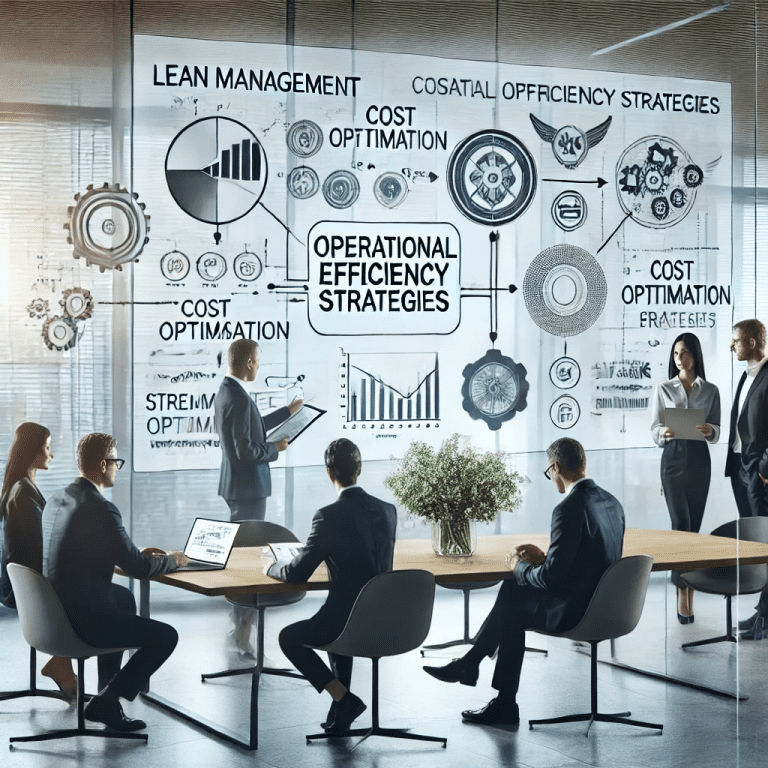Sustainability isn’t just a trend; it’s a necessary shift in how businesses operate. For small businesses, embracing sustainable and circular economy practices is about more than reducing environmental impact—it’s about building resilience, fostering innovation, and staying relevant in a rapidly changing market. Customers increasingly demand eco-conscious products and services, making sustainability a vital strategy for long-term growth.
Disclosure: If you click on my affiliate/advertiser’s links, I am going to receive a tiny commission. AND… Most of the time, you will receive an offer of some kind. It’ s a Win/Win!
I’ve seen how adopting sustainability principles can transform a business. From cutting down waste to finding new revenue streams through recycling and reuse, the circular economy offers incredible opportunities. It’s a system designed to keep resources in use for as long as possible, maximising value while minimising waste.
However, making the shift to sustainability can feel overwhelming. Where do you start? What steps can you take without breaking the bank? The good news is that sustainability doesn’t have to be an all-or-nothing endeavour. Even small changes—like choosing eco-friendly packaging or improving energy efficiency—can make a big difference.
This guide will help you navigate these questions and more. Whether you’re looking to attract eco-conscious customers, cut costs, or simply do your part for the planet, this article will provide practical advice and actionable steps. Let’s explore how small businesses can embrace sustainability and thrive in a circular economy.
Start Your Business Today with Registered Agents Inc.Table of Contents
1. What Is Sustainability and the Circular Economy?
An introduction to these concepts and their relevance for small businesses.
2. The Benefits of Sustainability for Small Businesses
Discover how sustainable practices can reduce costs, improve brand image, and attract customers.
3. Understanding Circular Economy Principles
Learn the key principles of reducing, reusing, and recycling to create value from waste.
4. Small Steps Toward Sustainability
Explore affordable and impactful ways to integrate eco-friendly practices into your operations.
5. Finding Sustainable Suppliers
Tips for sourcing eco-friendly materials and building a green supply chain.
6. Reducing Waste and Optimising Resources
Strategies for minimising waste, from packaging solutions to energy-efficient processes.
7. Technology for Sustainability
How AI and other digital tools can measure and improve your environmental impact.
8. Success Stories of Small Businesses in the Circular Economy
Inspiring examples of businesses transforming their operations with sustainable practices.
9. Overcoming Challenges to Sustainability
Addressing cost barriers, lack of resources, and employee buy-in with practical solutions.
10. Actionable Steps to Start Your Sustainability Journey
A step-by-step guide to implementing sustainable and circular economy practices today.
11. Summary and Conclusion: Building a Sustainable Future for Your Small Business
1. What Is Sustainability and the Circular Economy?
Sustainability and the circular economy are terms we hear often, but what do they really mean? At their core, sustainability is about meeting our needs today without compromising the ability of future generations to meet theirs. For businesses, this means adopting practices that minimise environmental impact, conserve resources, and create long-term value.
The circular economy goes hand in hand with sustainability. Unlike the traditional linear economy—where we take resources, make products, and discard waste—the circular economy focuses on reducing waste by reusing, recycling, and regenerating materials. It’s about keeping resources in use for as long as possible and extracting maximum value from them.
For small businesses, these principles are more than just ethical—they’re practical. By adopting sustainable and circular practices, businesses can save money, attract eco-conscious customers, and even discover new revenue streams. For example, a café might turn coffee grounds into compost or a retailer might sell products made from recycled materials.
Actionable Advice: Start by understanding your environmental impact. Conduct a simple audit of your business processes to identify areas where you can reduce waste, reuse resources, or source sustainably.
Unlock Global Growth with Wise Business
Tired of high international transfer fees and complex currency conversions? Join Wise Business and revolutionize your global finances. Enjoy:
- Borderless Banking: Access multiple currencies in one account.
- Instant Transfers: Send and receive money worldwide at lightning speed.
- Low-Cost Currency Conversion: Save on foreign exchange fees.
- Smart Business Tools: Manage expenses, invoices, and more, all in one place.
Apply now by clicking HERE and receive your free card to supercharge your business’s global potential.
2. The Benefits of Sustainability for Small Businesses
The benefits of sustainability for small businesses are compelling, both for the planet and your bottom line. One of the biggest advantages is cost savings. By reducing energy consumption, optimising inventory, and minimising waste, businesses can cut operational expenses significantly.
Sustainability also strengthens your brand. Customers today care deeply about the values of the companies they support. Businesses that embrace eco-friendly practices often attract loyal, like-minded customers who are willing to pay a premium for sustainable products or services.
Moreover, adopting sustainable practices can open up new market opportunities. For instance, governments and large corporations increasingly prioritise suppliers with strong environmental credentials. By going green, small businesses position themselves as attractive partners in this evolving landscape.
Actionable Advice: Highlight your sustainability efforts in marketing materials. Let your customers know how you’re making a difference—it could be the reason they choose you over a competitor.

3. Understanding Circular Economy Principles
At the heart of the circular economy are three key principles: reduce, reuse, and recycle. These principles challenge businesses to rethink their operations, focusing on minimising waste and maximising resource use.
Reducing means designing products and processes to use fewer resources. For example, a clothing brand might produce items from durable materials that last longer, reducing the need for frequent replacements. Reusing involves finding new ways to repurpose materials or products. Take a small brewery that turns leftover grain into animal feed or biofuel—this is reuse in action. Recycling comes last, ensuring that materials are processed and returned to the production cycle.
The beauty of the circular economy is that it often leads to innovation. Small businesses, with their agility, are particularly well-suited to experiment with these ideas and create new value from what might otherwise be discarded.
Actionable Advice: Map out your product lifecycle. Identify opportunities to reduce waste, extend the life of materials, or find innovative ways to reuse byproducts.

4. Small Steps Toward Sustainability
Making your business more sustainable doesn’t have to be overwhelming. In fact, small changes can lead to significant impacts over time. Start by focusing on areas where you can make immediate improvements, such as energy use, packaging, or waste management.
For instance, switching to LED lighting and energy-efficient appliances can lower electricity bills while reducing your carbon footprint. Opting for recyclable or biodegradable packaging not only benefits the environment but also appeals to eco-conscious customers. Even simple changes, like encouraging employees to print less or switch off lights when not in use, can make a difference.
These steps are often cost-effective and easy to implement, making them an excellent starting point for small businesses.
Actionable Advice: Choose one area to improve, such as energy efficiency or packaging. Measure the impact over time to see how small actions can add up to meaningful results.

5. Finding Sustainable Suppliers
Your supply chain plays a significant role in your business’s environmental impact. Partnering with sustainable suppliers ensures that your products are made from responsibly sourced materials, reducing your footprint before goods even reach your shelves.
Start by researching suppliers that prioritise sustainability, such as those using renewable energy, recycled materials, or fair labour practices. For example, a retailer might switch to suppliers offering eco-friendly packaging or clothing made from organic cotton.
Building relationships with these suppliers not only aligns your business with sustainability goals but also enhances your credibility with customers who value transparency and ethical practices.
Actionable Advice: Use directories like Green Directory or local trade groups to find sustainable suppliers. Prioritise those who share your commitment to reducing environmental impact.
6. Reducing Waste and Optimising Resources
Reducing waste is one of the most impactful steps a small business can take toward sustainability. This includes everything from minimising production waste to finding innovative ways to reuse or recycle materials.
For example, restaurants can reduce food waste by using AI tools to predict demand more accurately, while retailers can optimise inventory to avoid overstocking. Additionally, businesses can rethink packaging designs to use less material or switch to biodegradable alternatives.
Waste reduction isn’t just good for the environment—it’s good for your bottom line. Less waste means lower disposal costs and more efficient use of resources.
Actionable Advice: Conduct a waste audit to identify areas for improvement. Implement simple changes, such as switching to digital receipts or optimising product packaging.
7. Technology for Sustainability
Technology plays a crucial role in helping small businesses adopt sustainable practices. AI and data-driven tools can monitor energy consumption, track waste, and provide insights into areas for improvement.
For instance, platforms like Net Zero Cloud help businesses measure and reduce their carbon footprint. Inventory management tools like Netstock optimise stock levels to minimise waste, while smart thermostats and energy monitors ensure efficient use of resources.
By leveraging these tools, small businesses can make informed decisions, save money, and demonstrate their commitment to sustainability.
Actionable Advice: Explore tools that align with your sustainability goals. Start with free trials or low-cost options to test their effectiveness before scaling up.
Send better emails, get better results.
8. Success Stories of Small Businesses in the Circular Economy
Real-world examples can be incredibly inspiring. Take the case of Loop, a circular shopping platform where customers can buy everyday products in reusable packaging. This model reduces waste while offering convenience.
Or consider a small bakery that composts leftover ingredients or sells surplus bread at discounted rates to minimise waste. These businesses prove that even small enterprises can make a big impact by embracing circular economy principles.
Sharing stories like these can motivate your team, attract customers, and even spark your own creative ideas for implementing sustainable practices.
Actionable Advice: Research and share case studies of businesses in your industry that are succeeding with sustainability. Use these as inspiration to develop your own eco-friendly initiatives.

9. Overcoming Challenges to Sustainability
Adopting sustainable practices isn’t without challenges. Small businesses often face barriers like upfront costs, lack of expertise, and resistance to change. However, these obstacles can be overcome with careful planning and persistence.
Start by addressing cost concerns. Many sustainable initiatives, such as reducing energy consumption or waste, lead to long-term savings. For skills gaps, consider free resources or training programs focused on sustainability. And to win over hesitant stakeholders, emphasise the business benefits of going green, such as attracting customers or complying with regulations.
Actionable Advice: Break down larger sustainability goals into manageable steps. Focus on quick wins that demonstrate value and build momentum for bigger changes.
10. Actionable Steps to Start Your Sustainability Journey
The journey to sustainability begins with small, deliberate steps. Start by conducting an audit to identify areas for improvement, such as energy use, waste management, or sourcing practices. Then, prioritise changes that are affordable and easy to implement.
Engage your team in the process. Encourage brainstorming sessions for eco-friendly initiatives and provide training to ensure everyone understands the importance of sustainability. Finally, track your progress and celebrate milestones, no matter how small—they all add up to meaningful change.
Actionable Advice: Begin today. Choose one area of your business to improve and take the first step toward sustainability. The sooner you start, the sooner you’ll see the benefits.
11. Summary and Conclusion: Building a Sustainable Future for Your Small Business
Embracing sustainable and circular economy practices is not just a trend—it’s the future of successful business operations. Throughout this article, we’ve explored practical strategies for reducing waste, sourcing responsibly, and using innovative tools to optimise your resources. These steps not only benefit the environment but also drive long-term cost savings, attract loyal customers, and enhance your brand reputation.
The transition to sustainability starts with small changes. From switching to eco-friendly packaging to building a green supply chain, these adjustments can significantly impact your environmental footprint. Adopting circular economy principles—like reusing and recycling resources—takes these efforts to the next level, helping you minimise waste and maximise value.
It’s important to remember that sustainability is a journey, not a one-time task. Challenges like upfront costs or resistance to change may arise, but the rewards far outweigh the obstacles. By using technology to track your progress and engaging your team in brainstorming eco-friendly initiatives, you’ll build momentum and make meaningful changes that resonate with your customers and community.
The examples shared in this article demonstrate that even small businesses can lead the way in sustainability. Whether it’s a bakery composting its leftovers or a retailer selling products made from recycled materials, these stories inspire us to think creatively and take action.
At Krislai.com, I’m committed to providing you with actionable advice and practical insights to help you navigate the complexities of modern business. Bookmark this blog, share your progress in the comments, share this article with your friends using the buttons below, and return often for more tips on improving your business acumen and leadership skills. Together, let’s build a future that’s not only sustainable but also thriving.

- Turn AI Anxiety into Competitive Advantage: How to Future-Proof Your Workforce for the AI Revolution
- Unlock Profit: Calculate Customer Lifetime Value & Maximize Growth
- Creating a Customer Persona: A Step-by-Step Guide On How To Do It
- Unleashing the Power of Digital Signage: The Best Software to Transform Your Business
- How Businesses Can Use Freelance Platforms & Expert Networks to Scale Smarter








